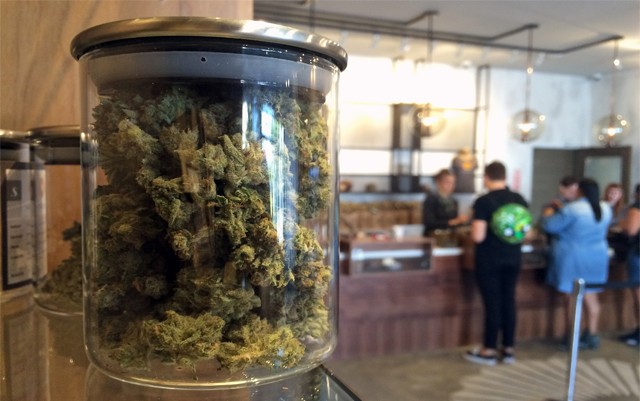The rapid growth of the cannabis industry in Denver prompted the city council to debate whether or not it was becoming necessary to put a limit on the number of businesses in the city. Currently, there are around 400 businesses, divided up between growers, retail shops and storefronts that combine the two – and there are still pending licenses to consider as well.
The bill that was introduced a few weeks ago deadlocked at a 6-6 vote and it would limit the number of businesses to be licensed in the future, create a lottery system to determine who gets a license when one is revoked or surrendered and it would also keep all marijuana grow operations a distance of at least 1,000 feet from schools, playgrounds and similar institutions (in the same way state law demands dispensaries be no closer than 1,000 feet of these establishments).
The most controversial part of the bill was a measure that would allow the pending licenses to be processed and considered a part of the overall cap for the city. Some, who claim the city is already “saturated” with marijuana businesses, did not agree with this measure, leading to the bills deadlock in the previous vote. Robin Kniech, who introduced the bill, made it clear that the particular item would not change in a future version of the bill.
When it was reintroduced, the only major change to the bill was one that would require new businesses to be licensed, as well as those renewing a license, to create a so called “Good Neighbor” plan, which would outline different ways the owners and employees would participate in community outreach – an issue that was specifically addressed by testimony at the previous hearing. People want these business owners to participate in the community just like any other local business would.
“Caps are a way of at least giving the city and the industry time to really figure out what is responsible growth,” he (Michael Elliot) said Monday.
The truth is, no one really knew what to expect when licensing began after recreational marijuana was legalized – and even though there was definitely a projected increase in cannabis related businesses, the sheer number for one area was not predicted to turn out this way. So really, in order to ensure that the industry stays stable, there is a lot that needs to be considered – and the licensing process is definitely one of those things.
Unfortunately, in this situation, there was no way to please everybody. The bill passed as written with a 7-5 vote – allowing pending licenses through and with a plan to reduce the number of growers in the city by 15 over a number of years. The good news is that changes can always be made in the future – this is simply the best way that the city could think up for now to make a compromise between the industry and the people of Denver.






